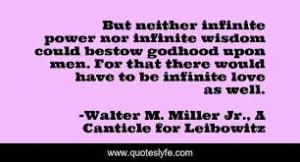Part 7 On David Tracy’s Fragments, Chapter 6, on Interpretation Theory

David Tracy has repeated consistently a description of the task of theology since his early work Blessed Rage for Order. In Chapter 6 of his new book Fragments, he makes the case again for a concept of theology that is shared by many but not all theologians. Theologies, of which there are a plurality, Tracy holds, attempt to “develop mutually critical correlations between contemporary experience and the Christian tradition.” (p. 137) In other places Tracy specifies that the mutual criticism is between the best interpretations by the many sciences of common experience and theology’s best interpretations of the Christian tradition. Theology is a science that engages many other sciences.
That “mutual criticism” part, from a traditionalist’s point of view, is surprising and, maybe, disturbing. Tracy does not think that the job of religion or theology is simply to supply answers to the modern world’s ultimate questions. Rather, theology dialogues with the secular world’s attempts to understand itself. That engagement with the world’s quest is an essential part of theology’s efforts to understand its own Christian heritage. There are questions and answers, with truths, doubts, and enigmas in both quests.
The interesting back-and-forth between the two sides helps explain why I continue my avocation as an amateur theologian who is also committed to the project of modern science and the modern world’s struggles for understanding and change. And the world’s continuing openness to the quest for ultimate meaning, even though often wrongly conceived, supports my continuing decision to count myself a Christian.
Witness not enough; dialogue needed
There’s a trend in theology that says theologians’ work is only to explain their own biblical and church traditions. Theology should help church members show the world what human existence would be like in a realm where God presides. Along the same line, many have adopted a “Benedict option.” They advocate withdrawing, like “desert father” St. Benedict, into metaphorical “deserts.” Worldly ways of improving human life are critically compromised, “fallen” in Christian terminology. Rather than try to save, or baptize, that pursuit, Christians of this mind, in the midst of the world and its affairs, should form the kind of community that would attract people out of their worldly mess and into God’s “kingdom.”
While not downplaying the importance of Christian witness to the world, Tracy would say it’s not enough. Christians must also listen to the world because good and evil both are there. And, like it or not, Christians, including theologians, are involved in both. Tracy is fond of saying, “There is no innocent text or tradition,” including the Bible and his own work.
Modern hermeneutics, the sciences of interpretation
Tracy spent much of his career working out the methods by which theology proceeds. That’s true of Chapter 6 in Fragments, “Hermeneutical Reflections in the New Paradigm of Theology.” Tracy’s reflections on theories of interpretation (hermeneutics) get rather technical, but they boil down to one main point. That is, to follow rules in order to have an honest, responsible conversation, whether with another person, a symbol or event, or a classic text like the Bible. Not prior judgments but the subject matter guides the conversation.
In Chapter Six the conversation is mainly on the question, What is religion? Answers vary widely:
The prospective interpreter may believe either that religion is one of the great creative forces of the human spirit or that religion is a deadly confusion. In fact it is both. (p. 132)
Tracy continues: a religious phenomenon “will ordinarily provoke some fundamental existential question.” Examples include questions about finitude, fault, tragedy, and trust or distrust in reality. A religious expression may have an alien feel about it. That heightens the interpreter’s “consciousness of her preunderstanding.” (p. 133) When a conflict of understandings takes the form of a conversation, genuine interpretation begins. “Neither interpreter nor text [or religious expression], but the common subject matter takes over the entire interaction….” (p. 134)
The most interesting part of Tracy’s hermeneutical reflections concerns what needs to happen when conversation breaks down. I’ve had conversational breakdowns over subjects like wearing masks in a pandemic and who won the 2020 election. I suspect that my interlocutor’s a priori political commitment is hindering an accurate look at both these issues. I suppose the other side has their own suspicions about me. Notice the words “suspect” and “suspicions.” The technical word for this move to see what’s behind a failure of conversation is “hermeneutics of suspicion.”
When conversation with the Bible breaks down
With conversation you think of two people in dialogue. When that conversation, or dialogue, becomes the model for reading the Bible, something interesting happens. The subject matter, which is supposed to guide the conversation, is no longer the words of the text, as if you were studying for an exam. It’s not even an idea in the biblical author’s mind and certainly not an idea in your own mind. Tracy identifies the subject matter as “the world of meaning” that the text offers as “a possible way-of-being-in-the-world.” (p. 134) In a conversation we want more than an exchange of ideas. We are exploring the world, and we want truth.
Imagine dialoguing with the Bible on ways of being in the world like:
- slavery,
- homosexuality,
- being a woman in society,
- being a person in an established civil, political, economic, and social order,
- trying to act justly in a world of gross inequalities,
- humility vs. pride, trust vs. alienation, being thankful vs. taking credit or taking for granted.
Theologies and culture
Fellow Dying Inmate, one of my favorite bloggers on Patheos/Catholic, insists that the cultural world of Jesus and the Gospel writers was miles apart from what we experience. Add to that the fact that early Christians seem to have expected (wrongly) an imminent end to the world, or this age of the world at least. One can legitimately “suspect” that some of the Bible’s “answers” derive from something other than divine revelation.
We have a better answer to the slavery question than the Bible did, not that we always practice it. The Bible’s authors may not have known about homosexuality as a disposition, as distinct from homosexual acts. It’s safe to say the Bible advanced the position of women in society, but its record on that is inconsistent, and Christianity’s history is compromised. When it comes to a person’s place amid the many institutions that constitute society, it’s our modern emphasis on the individual that is most suspect. Our obsession with positive self-image could stand some biblical hermeneutics of suspicion. Also suspect, from the Bible’s point of view, is a concept of economic justice that places primary stress on the current distribution of wealth. Until social justice became an issue recent times, I and many other Christians didn’t notice the radicalism of some of our Scriptures.
Liberation theologies
There is no innocent tradition or text, including, Tracy says, his own. All contain “moral ambiguities that can become repressed … by still unconsciously and systematically present distortions.” (135) A variety of liberation theologies, including black, feminist, indigenous etc. theologies, use a hermeneutics of suspicion to expose these assumptions.
Tracy says sexism, racism, classicism and other distortions, so evident in our world, are also “operative in the Jewish, Christian, and Islamic religious classics.” (136) He concludes:
As a pluralistic and ambiguous phenomenon, religion not merely allows but also demands both hermeneutics of retrieval and suspicion.” (P. 136)
Different starting points lead to different theologies. Tracy asks us to imagine the difference a profound sense of trust would make as opposed to a sense of alienation or oppression. How might one’s idea of revelation be influenced by taking seriously the scientific revolution, the Enlightenment, and the awareness that all knowledge is historically conditioned? Or what if – as in liberation theologies – one tries to understand salvation “in the light of the counter-experience of massive global suffering”? (P. 139)
I can imagine that the differences would be huge. I wish Tracy had done more than raise the questions. But this is only one essay in Tracy’s collection called Fragments. Tracy recognizes a plurality of theologies but presses for a “theological community of inquiry” united around a consensus that he say already exists:
Our options, fortunately, are not exhausted by the unwelcome alternatives of chaos or fundamentalism. Rather, we find ourselves in a theological community of inquiry and commitment. In that community we attempt, individually and communally, to work out the most relatively adequate, mutually critical correlations between the Christian message and contemporary experience, in reard to the pressing theological questions of our day. (p. 143)












